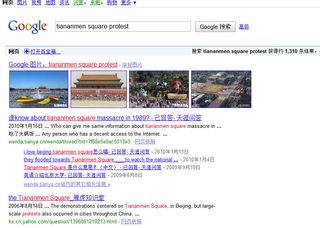Google: Going back to ‘Don’t Be Evil’?
Does Google's quarrel with China show that the web giant has rediscovered its guiding principles?
On the one hand, as Privacy International pointed out, Latitude is a handy tool for potential stalkers, prying employers and miscellaneous obsessives, and one that anyone with momentary access to your handset could engage.
Worse, as he UK's Children Charity Coalition for Internet Safety explained, Latitude made it all too easy for children to thoughtlessly reveal their real-time location to any of 2000 friends' on Facebook.
Needless to say, chief executive Eric Schmidt's widely publicised December comment that "if you have something that you don't want anyone to know, maybe you shouldn't be doing it in the first place" hasn't endeared him or Google to those who worry about the company's big brother potential.
Nor has the company's reported legal avoidance of 450 million of taxes helped its case in the UK. In terms of revenue, the UK is Google's largest market outside of the US, but by diverting revenues to a Northern Ireland subsidiary, Google could actually claim a 26 million pre-tax loss.
The turnaround
This year, however, has given us a new, shiny, whiter-than-white Google, with its 12 January announcement of "a new approach to China" widely seen as a turning point.
Not only did Google publically accuse China of a "highly sophisticated and targeted attack on our corporate infrastructure", it also implicitly criticised Chinese policies over surveillance and human rights.
Get the ITPro. daily newsletter
Receive our latest news, industry updates, featured resources and more. Sign up today to receive our FREE report on AI cyber crime & security - newly updated for 2024.
Tough talking Google threatened to review its business operations in China and if it deliver uncensored search results walk out.
The result? The company's best press for some time. "Four cheers forGoogle. Risking the loss of potentially huge long-term profits in the Chinese internet market, it has struck a blow for one of the great causes of our time: global information freedom" wrote columnist Timothy Garton Ash in The Guardian.

"When Google first launched a filtered search engine in China, EFF was one of the first to criticise it," said the EFF's Danny O'Brien. "We'd now like to be one of the first to commend Google for its brave and forthright declaration."
In the US House of Representatives, the speaker, Nancy Palosi, described Google's actions as "an example to businesses and governments."
What's more, Google's gambit gave its competitors the perfect chance to shoot themselves squarely in the foot. Bill Gates described Google's dispute with China as "a complex issue" and argued that "you have got to decide, do you want to obey the laws of the countries you are in or not? If not, you may not end up doing business there."
Ballmer described Google's stance as "irrational" and stated "We have done business in China for more than 20 years and we intend to stay engaged, which means our business must respect the laws of China."
Stuart has been writing about technology for over 25 years, focusing on PC hardware, enterprise technology, education tech, cloud services and video games. Along the way he’s worked extensively with Windows, MacOS, Linux, Android and Chrome OS devices, and tested everything from laptops to laser printers, graphics cards to gaming headsets.
He’s then written about all this stuff – and more – for outlets, including PC Pro, IT Pro, Expert Reviews and The Sunday Times. He’s also written and edited books on Windows, video games and Scratch programming for younger coders. When he’s not fiddling with tech or playing games, you’ll find him working in the garden, walking, reading or watching films.
You can follow Stuart on Twitter at @SATAndrews.





